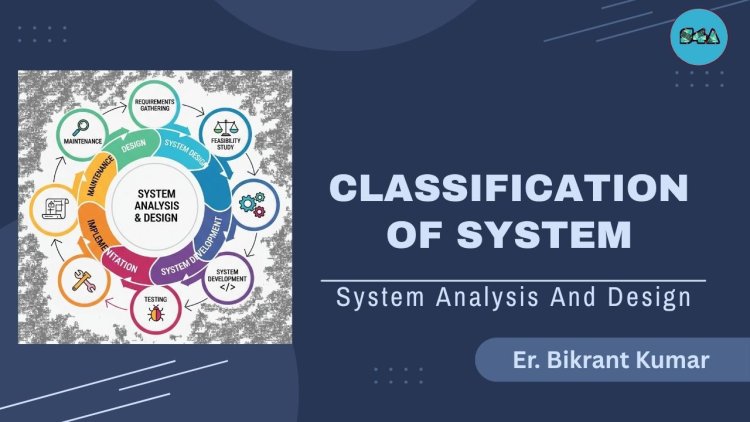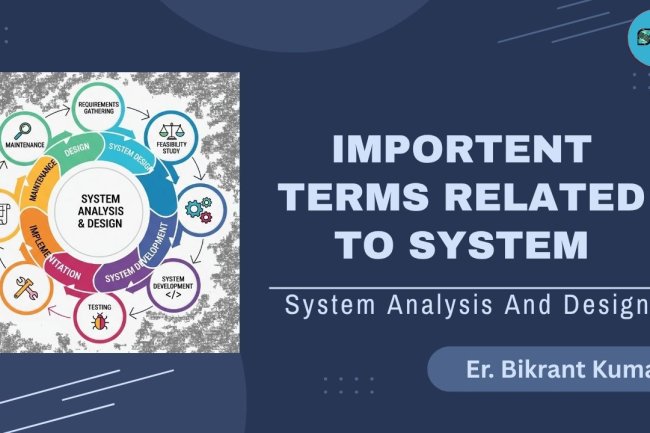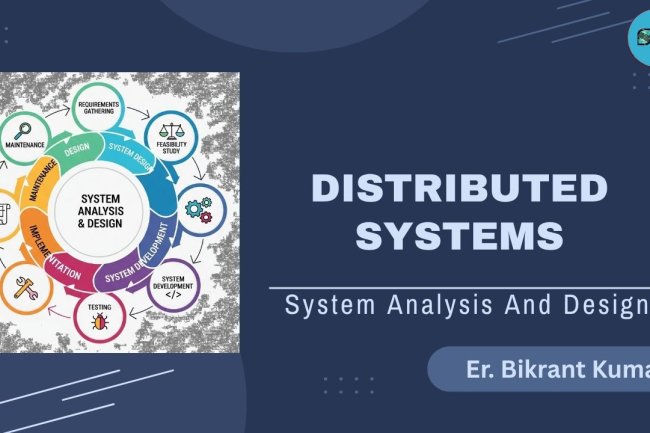Classification of System in System Analysis and Design
SAD is a process for analyzing an organization's needs and designing new information systems to meet them.

Definition
Systems can be classified based on their nature, structure, functionality, and interactions with the environment. Understanding these classifications helps system analysts choose the right design and development approach.
Diagram: Classification of System

1. Physical vs. Abstract System
|
Type |
Description |
Example |
|
Physical System |
Tangible systems composed of physical components. |
Computer, Engine, Human Body |
|
Abstract System |
Conceptual or logical systems, often models or theories. |
Software algorithm, Accounting system, Organizational structure |
2. Open vs. Closed System
|
Type |
Description |
Example |
|
Open System |
Interacts with the environment, receives input and produces output. |
Business organization, School |
|
Closed System |
Does not interact with the external environment (ideal case). |
Chemical reaction in sealed container, Watch mechanism (theoretically) |
In reality, no system is fully closed; all systems have some interaction with their environment.
3. Deterministic vs. Probabilistic System
|
Type |
Description |
Example |
|
Deterministic System |
Operates in a predictable and predefined manner. |
Calculator, Payroll system |
|
Probabilistic System |
Outcomes are uncertain; relies on probability or chance. |
Stock market prediction, Weather forecasting |
4. Man-Made vs. Natural System
|
Type |
Description |
Example |
|
Man-Made System |
Created by humans to serve a purpose. |
Computer system, Railway network |
|
Natural System |
Exists in nature without human intervention. |
Solar system, Ecosystem |
5. Permanent vs. Temporary System
|
Type |
Description |
Example |
|
Permanent System |
Exists for a long period, often indefinitely. |
Education system, Judicial system |
|
Temporary System |
Designed for short-term goals or time-bound. |
Event management system, Election system |
6. Adaptive vs. Non-Adaptive System
|
Type |
Description |
Example |
|
Adaptive System |
Changes in response to environmental changes. |
AI software, Learning management system |
|
Non-Adaptive System |
Remains unchanged regardless of the environment. |
Traditional mechanical watch |
Why Classification is Important in SAD?
- Helps in understanding system behavior and complexity
- Aids in selecting appropriate design and implementation techniques
- Improves system performance and maintainability
------------------------------
Files
What's Your Reaction?
















